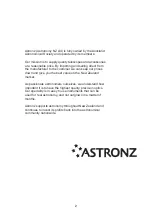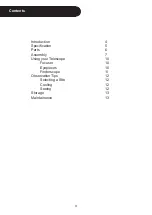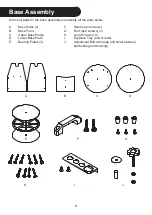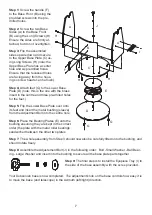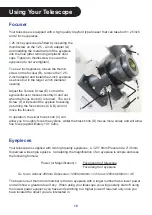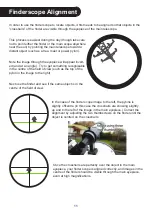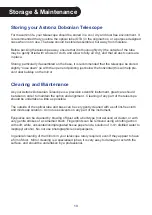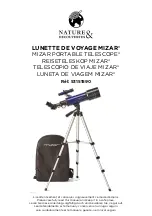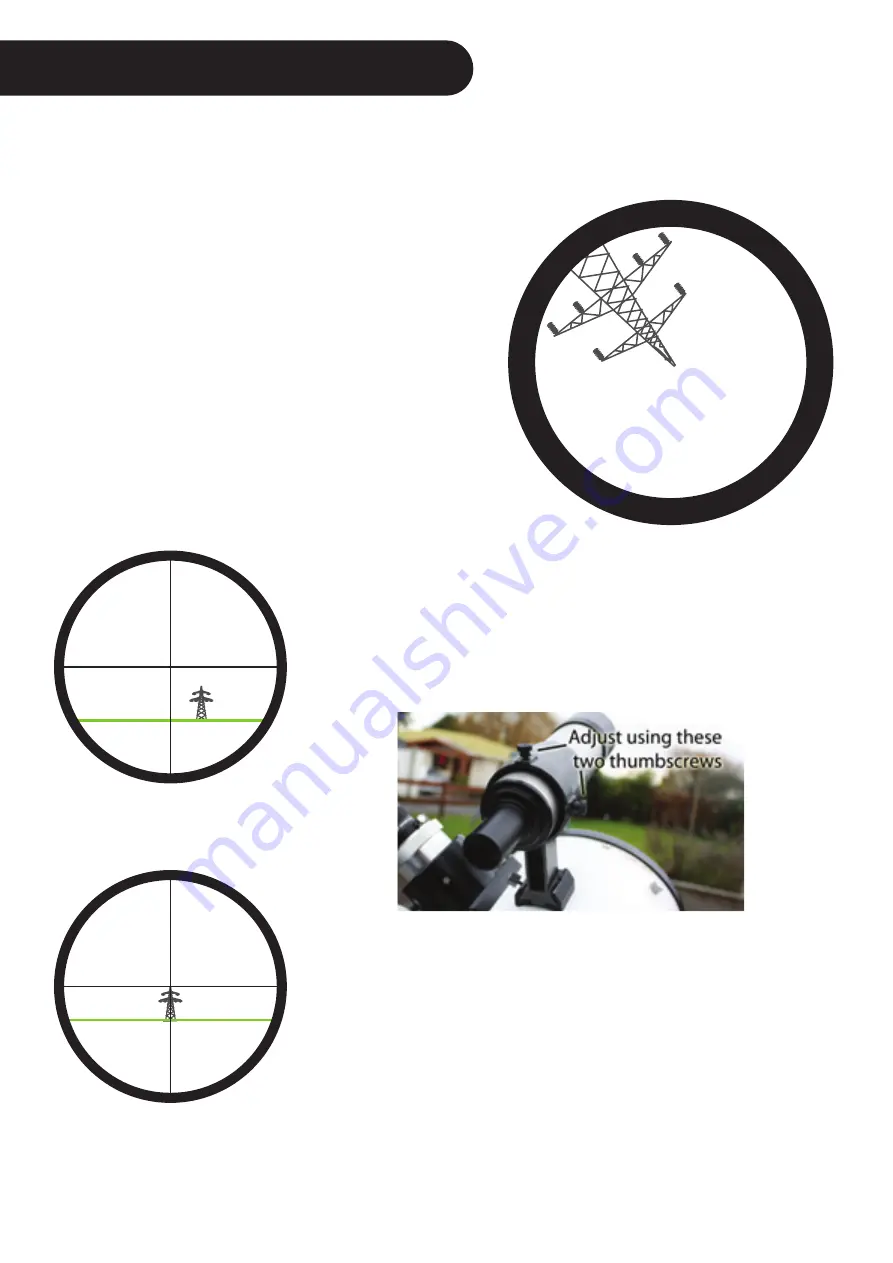
11
In order to use the finder scope to locate objects, it first needs to be aligned so that objects in the
“crosshairs” of the finder are visible through the eyepiece of the main telescope.
This process is easiest during the day (though take care
not to point either the finder or the main scope anywhere
near the sun) by pointing the main telescope toward a
distant object (such as a tree, mast or power pylon).
Note the image through the eyepiece will appear invert-
ed (and at an angle). Try to get something recognisable
in the centre of the field of view (such as the top of the
pylon in the image to the right)
Next use the finder and see if the same object is in the
centre of the field of view.
In the case of the finder scope image to the left, the pylons is
slightly offcentre (in this case the crosshairs are showing slightly
up and to the left of the image in the main eyepiece.) Correct the
alignment by adjusting the two thumbscrews on the finder until the
object is centred on the crosshairs
Once the crosshairs are perfectly over the object in the main
eyepiece, your finder scope is aligned correctly, and images in the
centre of the finder should be visible through the main eyepiece,
even at high magnifications.
Finderscope Alignment
Summary of Contents for DOBSONIAN GS680
Page 14: ...14...


